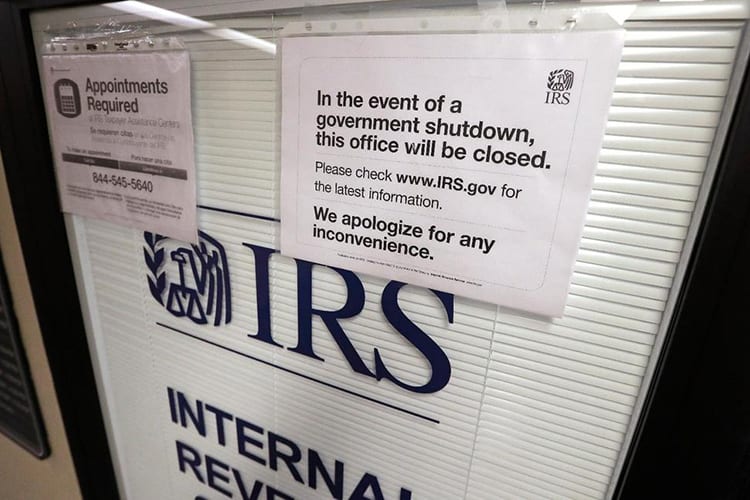WASHINGTON — According to the Associated Press, Disruptions from last month’s partial government shutdown caused a “shocking” deterioration in the IRS’ telephone help for taxpayers in the first week of the filing season, the agency’s watchdog said in a report released Tuesday.
In the week of Jan. 28, the official start of the tax season, Internal Revenue Service staffers answered only 48 percent of calls seeking help in filing returns, with an average wait time of 17 minutes, the report from the office of the National Taxpayer Advocate said. That compares with 86 percent of calls answered, and an average wait of 4 minutes, at the same time last year.
In addition, 93 percent of taxpayers who phoned during the last week in January to arrange installment tax payments were unable to speak with an assistant.
The difference between the two years “for levels of service and wait times for phone lines … is shocking,” the advocate, Nina Olson, wrote in her annual report to Congress. “These numbers translate into real harm to real taxpayers. The IRS will be facing tough decisions in light of the shutdown’s impact.”
The agency is reviewing the report and is “continuing to assess the impact of the shutdown on our various operations,” the IRS said in a statement Tuesday. “The IRS is committed to continue making improvements across our information technology, tax enforcement and taxpayer service operations.”
“The IRS successfully reopened operations following the shutdown, and the agency is seeing a good start to the 2019 filing season,” the statement said.
The report flagged other problems at an agency that was already straining, even before the shutdown, from the burden of a complex new tax law, inadequate funding and antiquated computer systems. The IRS’ workforce faced a huge backlog — including 5 million pieces of mail to process —when it returned to full strength Jan. 28 after the 35-day partial shutdown, which had furloughed most of its employees.
During the shutdown, the Trump administration made money available to pay hundreds of billions in refunds and ordered nearly 60 percent of the IRS workforce back to work without pay to handle tax returns and questions. Yet fewer than half the recalled employees had returned to their jobs by the time the shutdown had ended, according to congressional and government aides.
The disruption raised the possibility of delayed processing of returns and refunds — an annual check that about three-quarters of U.S. taxpayers typically count on. Lower-income households, especially, depend on refunds as their biggest cash infusion of the year.
The IRS has said that when taxpayers file electronically and use direct deposit to their bank accounts, roughly nine out of 10 refunds will continue to be issued this year in fewer than 21 days.





